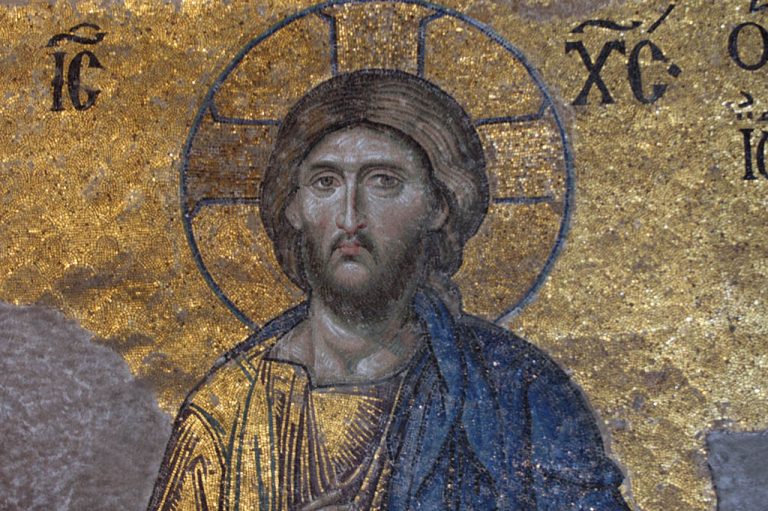Evangelicalism in most of Christianity is antithetical to the teaching and lifestyle of Jesus Christ, according to one Liberation theology promoter exercising ministry within the United Methodist Church.
“We have come to accept the Gospel of Jesus as an imperial theological discourse that tolerates, approves and supports the powers of domination and oppression of this world,” said Dr. Eliezar Valentín-Castañón, during his annual address . Oscar Romero Conference and the Dean’s Forum on March 19 at the United Methodist Affiliate Wesley Theological Seminary in Washington, D.C.
The Frederick District superintendent at the United Methodist annual conference in Baltimore, Washington, sought to present evangelism from what he called a prophetic, liberating, Wesleyan perspective, which he believed Romerowould have shared the Catholic prelate of the Archdiocese of San Salvador assassinated in 1980.
In his speech, Valentín-Castañón touted the book by religion scholar and president of the Public Religion Research Institute Robert P. Jones. The hidden roots of white supremacy.
“This illustrates how this doctrine has imbued our own ideological understanding of evangelicalism in a white European mentality,” praised Valentín-Castañón.
“This imperialist Christianity made Jesus the glorious, all-powerful and perfect king. This imperial Jesus that we find in the Church replaces the Jewish peasant of Nazareth. The one who came from a poor working-class family, came from an unknown place called Nazareth and was crucified by the Roman forces occupying Palestine, for proclaiming an anti-imperialist message of human liberation,” insisted Valentín-Castañón.
He claimed: “Over the centuries, this imperialist Christianity has transformed the anti-imperialist Jesus into someone who appears to have accepted the offer Satan made to him in the desert. The Jesus that most of us have come to know in today’s Christian world seems to have bowed to Satan, and therefore to all the powers and principalities of this world. This is the Jesus who was introduced into my own fundamentalist church.
Valentín-Castañón argued that imperial Christianity “created a vision of the Godhead as an all-powerful, omniscient, and ever-present being, a God so beyond us as to be out of reach for us mere mortals.” This imperial Christianity presents us with a distant and indifferent God, without humanity or human frailty. This idea of Godhead has left us convinced that God, who we have been told loves us, is only interested in us if we care about the spiritual holiness that will lead us into the perfect world where God resides in heaven .
The United Methodist district superintendent claimed that Christians had received a distant reading of Matthew’s gospel from heaven.
“In the New Testament, heaven as the final destination of our salvation is not actually the final place for those who believe in the goodness of the construction worker, the prophet of Nazareth,” Valentín-Castañón argued. “Therefore, God’s place is now among us according to Jesus. God is present among us. God has pitched a tent with us as we read in John 1:14. This is what the Incarnation did. God has pitched a tent among us and is here right now.
Valentín-Castañón continues: “In this imperial theology, God expresses the desire to maintain heaven as something separate from us, which certainly corresponds to a political ideology of alienation, where human beings must only worry about going to heaven where they will be saved. It is the quintessence of Neoplatonic theology which establishes God’s dwelling place, heaven, as God’s prison.
Imperial theology, Valentín-Castañón insisted, created a “perfect God who can only be perfect when separated from the imperfections and corruption of humanity.”
“This imperial Christian theology also used the Gospel of John to justify this view of the Godhead,” Valentín-Castañón asserted. “A God more concerned with himself than with the mystery of humanity. Some of us might say it’s because of our sins. The argument here is that we have transformed a God who was supposed to be the God who identifies with the poor and oppressed, as we have seen throughout Scripture, into a God who is so far from us that we We can hardly identify him as God. .”
Valentín-Castañón recounted the spiritual practices that Christians have been told they must follow or care about in order to get to heaven, without mentioning salvation as a free gift from God.
“We must engage in prayer, worship, fasting and many other spiritual disciplines. These are the things that will take us to heaven. We have forgotten that the Jesus we find in the Gospels actually speaks about much more than that. When we read in Scripture this idea of Jesus’ commitment to being in the world, we find a Jesus who speaks to the powers of this word and condemns wrongdoing that harms his fellow man.
“Imperial Christianity developed a theology that accommodated these conditions. They are due to our sinful nature, so there is not much we can do about it. Imperial theology says that things will one day get better in heaven. In the meantime, we live and wait to get to heaven. In the end, the world as we know it will be consumed and the kingdom of God will be established as it is in heaven. This is not the Jesus of Puebla. Nor was this the Jesus that Romero experienced in El Salvador. This is not the Jesus we find in the gospels.
The lecture can be viewed in its entirety below on the Wesley Theological Seminary YouTube channel:


